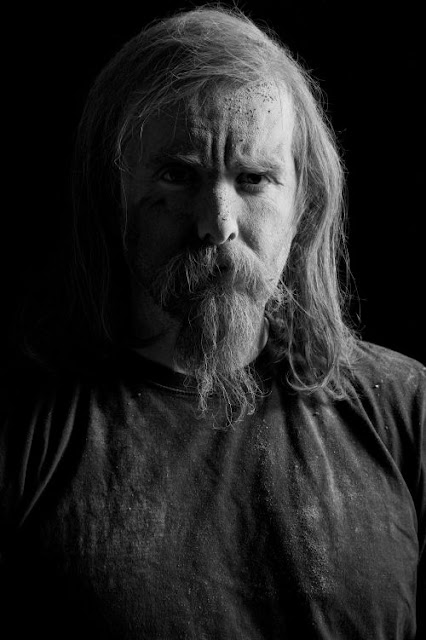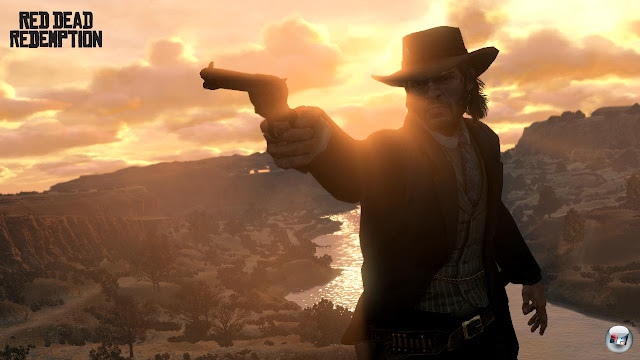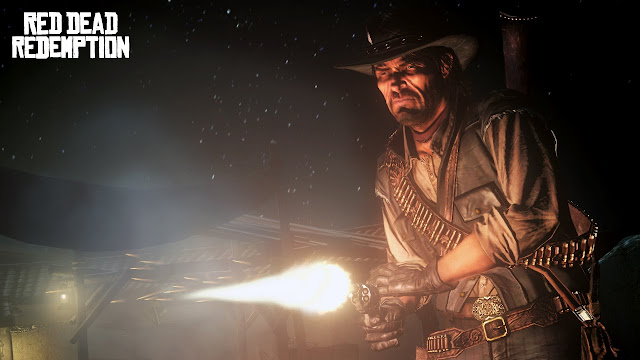>
All posts by Indy
>Outer Dark – Awake from this dream:
>
There was a prophet standing in the square with arms upheld in exhortation to the beggared multitude gathered there. A delegation of human ruin who attended him with blind eyes upturned and puckered stumps and leprous sores. The sun hung on the cusp of eclipse and the prophet spoke to them. This hour the sun would darken and all these souls would be cured of their afflictions before it appeared again. And the dreamer himself was caught up among the supplicants and when they had been blessed and the sun began to blacken he did push forward and hold up his and and call out. Me, he cried. Can I be cured? The prophet looked down as if surprised to see him there amidst such pariahs. The sun paused. He said: Yes, I think perhaps you will be cured. Then the sun buckled and dark fell like a shout. The last wirethin rim was crept away. They waited. Nothing moved. They waited a long time and it grew chill. Above them hung the stars of another season. There began a restlessness and a muttering. The sun did not return. It grew cold and more black and silent and some began to cry out and some despaired but the sun did not return. Now the dreamer grew fearful. Voices were being raised against him. He was caught up in the crowd and the stink of their rags filled his nostrils. They grew seething and more mutinous and he tried to hide among them but they knew him even in that pit of hopeless dark and fell upon him with howls of outrage.
Yes, it’s that Cormac McCarthy again. This time in the nightmarish Outer Dark, filled to the brim with scenes of horror, incest and murder, told with the biblical rhetoric I’ve come to love, telling tales of the depravity of human nature – the fundamental truth – like there is no tomorrow.
The above quote cites Culla Holme, one brother who shares an incestuous union with his sister. A baby is born out of this incest and Culla, claiming it is dead, brings the child to the woods and buries it alive. The woman soon discovers her brother’s lie and sets forth alone in search of her baby. The brother follows, looking for her. And thus begins the tale of aimless wanderings from one unimaginable horror to another.
Of course, it is a must read. The setting at times reminiscent of the one in Child of God – another McCarthy masterpiece – but in a different part of the world, in another Hell.
Woe to you, Oh Earth and Sea,
for the Devil sends the Beast with wrath,
because he knows the time is short…
>Den Hvite Guden
>Heavy Rain – The choices we make…
>
Even though the gameplay is very basic and straight forward, and your only real gaming input is strictly limited, Heavy Rain is a fantastic experience.
Gameplay is all about choosing between different options and pressing the correct button in time. That’s pretty much it. And there are some minor flaws: Some puzzles and ways of getting information are just plain stupid and tiresome (the Ann Sheppard scene, for example). Also, sometimes the choices you make really don’t make a difference, which is quite annoying. As is the fact that all teeth look like rubbish, which is a mystery since the graphics overall are just stunning. People walk around looking like Method Man with braces. But then again, this is the American future. Too much Coke, I guess.
If you’ve seen a couple of American movies in your lifetime, you’ll recognize the way this story moves. It plays just like a movie, and therefore it is – in many ways – more than a game. A lot of the scenes are very predictable (even though I have to admit that I didn’t know who the killer was until the very end. One thing you’ll always know with generic scripts is that whatever person they want you to recognize as the bad guy, it sure as hell never is him in the end), but since the atmosphere rule, you tend to forget that. Same thing with the simplicity of the gameplay.
Because what makes Heavy Rain such an awesome experience is the atmosphere. If this is your type of game, you’ll be totally hooked. Because it’s not how you do things, but what you do that really matters and makes this game stand out. It’s all those tiny details, like changing a baby’s diapers and then rocking her to sleep, brushing your teeth and making sure your boy gets his medicine in time; those are the moments that strenghtens the ties of blood, for they depict real life.
The choices we make shape our lives, and there are many choices to be made in Heavy Rain. For the first time in gaming history, here is a game that actually capitalize on the moral decision concept. This is way beyond choosing between a good or bad ending.
How far would you go to save someone you love?
At one point there are five different choices with various outcomes, depending on what you did earlier in the game, and I think there are at least seven different endings with 18 different epilogues. If one of your characters faces an early death, you’ll miss out on a lot of chapters that would’ve appeared hadn’t she died. When finishing the game for the first time you’ll almost immediately need to replay some chapters to see how the story would unfold had you chosen another direction.
Adding to the atmosphere is of course the music. And it’s out there! Not just the official soundtrack, but a lot of the cues and songs that didn’t appear on the official release. I found this link:
http://www.zshare.net/download/784372202efa351f/
Sharing is caring.
And caring is pretty much what Heavy Rain is all about.
>The Metaphysics of Indian-Hating — Blood Meridian Pt. 3
>
Blood Meridian is Cormac McCarthy’s first historical novel, as well as his first ”western”, with its roots in the history of the West. Like Samuel Chamberlain’s memoir, My Confession: Recollections of a Rouge – a mixture of fact and fiction which forms the basis of Blood Meridian – McCarthy’s novel is peopled by both real and fictional characters. However, those memoirs are far from the only sources used by McCarthy to tell his tale of the macabre. Every page in this astonishing book is the result of intense studying of great historical works by novelists, dramatists, reporters, biblical scribes, scientists, historians… The list of works is virtually endless, which makes the novel even more fascinating.
I knew from reading McCarthy’s novels that he pays great attention to geography, but I had no idea that Blood Meridian was based on such sickening historical analogues, such as the Yuma-ferry massacre, until I started doing a bit of research myself. Indeed, the Yuma-ferry massacre was very real. And Judge Holden – Satan – does exist:
Whatever his antecedents he was something wholly other than their sum, nor was there system by which to divide him back into his origins for he would not go.
However much historical research McCarthy did, there is still the fact that history is very much characterized by chance. Who was there and why? Whom to trust if only the winners get to write history? Facts really are ”facts”. If you study the Holocaust, this fact couldn’t be more obvious.
It seems like McCarthy is well aware of this, thus blending fact with fiction in such a smooth way. The cruel thing is that what may come off as fiction because of its sheer brutality is often pure fact.
The first time that I read Blood Meridian I was captivated by the balance of beauty and violence, and the words that read like poetry. I had a hard time struggling with the language, though, so the second time I could concentrate more on the story, delving into the characters and experiencing the flow. After this session I began studies on the text and by the third time I knew a lot more about the building blocks, the background stories and stuff like that.
You may read Blood Meridian as a work of fiction, but knowing about the conditions of the time in which Judge Holden lived makes it even more amazing. For example, the conflicts existing in 1850 between Mexicans (both common people and military), US troops, Texans (both Ranger and civilian), Comanches, Apaches, gold-rush travellers… and the scalp hunters.
Getting an Indian’s scalp was the most certain way to prevent the Indian’s soul from reaching paradise. When the scalp is torn off, the body becomes useless, not even worthy of burial. Also, if the Indian is killed by strangulation, the soul can never escape but must always remain within the body, even after complete decomposition. Thus, to the Indians, to keep the scalp was more important than to keep the life, and so, when the scalphunters presented a scalp is was certain proof of the Indian’s certain death.
(The head photo of this blog depicts an Indian burial ground)
There was good money in the scalphunting business, and the scalps were the recipes for these business men – a tradition that exists in modern day warfare as well (for example, troops in the Vietnam war had ears tied to the antenna of their vehicles as trophies of the body count).
The government of Chihuahua paid scalp bounties, which was not uncommon. Many American states, counties and cities did this, although the government of the United States never bought hair. The governmental payment for one single scalp exceeded the amount that a common day worker who became a gang member could earn in a year.
John Sepich writes in Notes on Blood Meridian:
”Pay in the United States Army at about that time ran between seven and fifteen dollars a month when bonuses were included. A group of fifty Indian hunters paid two hundred dollars a scalp would have to bring only four scalps a month into Chihuahua city in order to exceed the army’s rate of pay, and for work not much more hazardous than the army’s. Kirker’s group was known to have killed as many as two hundred Indians on a single trip, bringing in one hundred and eighty two scalps. This approach yielded sixty times what the men would have earned in other employment. At one point, Chihuahua owned James Kirker $30,000.”
The government of Chihuahua was also willing to pay for the scalps of women and children. Also, the city was inhabited by mestizos, Latin American people whose hair was similar to the Indian’s, resulting in the slaughter of many Mexican citizens. The moral problem of scalphunting was not even a problem, since the scalphunters were licenced to do a job for the benefit of the state.
The American Holocaust in full effect.
To be continued in Part Four.
Insights reached with the help of Notes on Blood Meridian by John Sepich.
Related posts:
The Evening Redness in the West – Blood Meridian Pt. 1
The Letting of Blood – Blood Meridian Pt. 2
Genocide Awareness Pt. 1
Genocide Awareness Pt. 2
Belief and Bloodshed: The Religion of Genocide
Derrick Jensen: Endgame
Edward Abbey on population growth
Chomsky on demoralized societies
McCarthy’s The Road
The Road
The Road – A Neverending Well of Bliss
>blu – BIG BAG BIG BOOM
>When graffiti is not enough…
BIG BAG BIG BOOM – the new wall-painted animation by BLU from blu on Vimeo.
>Legacy of Letters
>
Legacy of Letters from Luca Barcellona on Vimeo.



























